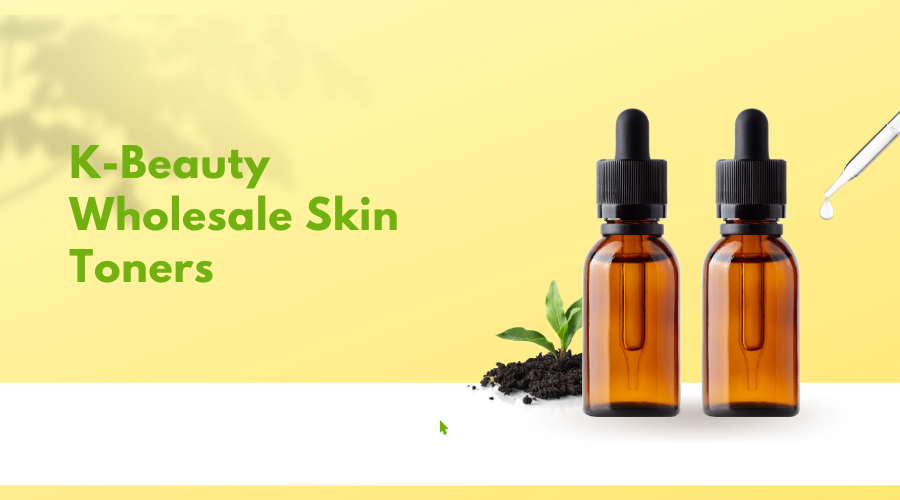Face Serum 101: Everything You Need To Know
- healthybeautykr
- Jun 24, 2024
- 4 min read
Updated: Apr 4

In the skincare world, face serums have emerged as a game-changing product. With the promise of delivering powerful ingredients directly into the skin, serums have become a staple in many skincare routines. But what exactly is a face serum, and what does it do?
1. Understanding Face Serum
Face serums are light, quick-absorbing liquids that deliver potent doses of active ingredients to the skin. Unlike moisturizers, which are heavier and create a barrier on the skin to retain moisture, serums are typically water-based or oil-based formulations that penetrate deeper into the skin layers.
2. Key Ingredients in Face Serums
The effectiveness of a face serum lies in its ingredients. Here are some common active ingredients found in serums and their benefits:
Hyaluronic Acid: Hyaluronic acid is known for retaining moisture and helping keep the skin plump and hydrated.
Vitamin C: A powerful antioxidant that brightens the skin, reduces hyperpigmentation, and boosts collagen production.
Retinol (Vitamin A): Enhances cell turnover, reduces fine lines and wrinkles, and improves skin texture.
Peptides: Help in collagen production and improve skin elasticity.
Niacinamide (Vitamin B3): Reduces inflammation, minimizes pores, and regulates oil production.
Alpha Hydroxy Acids (AHAs) and Beta Hydroxy Acids (BHAs): Exfoliate the skin, improve texture, and reduce acne.
3. Benefits of Using Face Serum
Incorporating a face serum into your skincare routine offers numerous benefits:
Deep Hydration: Serums can penetrate the skin more deeply, providing intense hydration.
Brightening Effect: Ingredients like Vitamin C can help brighten the skin and reduce the appearance of dark spots.
Anti-Aging: Retinol and peptides in serums can help reduce the appearance of fine lines and wrinkles.
Acne Prevention: Serums containing AHAs and BHAs can help prevent acne by exfoliating the skin and unclogging pores.
Improved Skin Texture: Regular serums can lead to smoother, more even-toned skin.
4. Choosing the Right Face Serum for Your Skin Type
Selecting the suitable serum depends on your skin type and concerns:
Dry Skin: Look for serums with hydrating ingredients like hyaluronic acid and glycerin.
Oily Skin: Opt for lightweight, non-comedogenic serums that contain niacinamide or salicylic acid.
Sensitive Skin: Choose serums with soothing ingredients like aloe vera and chamomile, and avoid those with alcohol or fragrance.
Mature Skin: Serums with retinol, peptides, and antioxidants can help combat signs of aging.
Acne-Prone Skin: Serums with AHAs, BHAs, or benzoyl peroxide can help keep breakouts under control.
5. How to Use Face Serum in Your Skincare Routine
Integrating a face serum into your skincare routine is straightforward. Here's a step-by-step guide:
Cleanse: Start with a gentle cleanser to remove any dirt and impurities.
Tone: Use a toner to balance your skin's pH levels.
Apply Serum: Take a few drops of the serum and gently pat it onto your skin. Allow it to absorb fully.
Moisturize: Follow up with a moisturizer to maximize the serum's benefits.
Sunscreen: In the morning, always finish with a broad-spectrum sunscreen to protect your skin from UV damage.
6. When to Use Face Serum
Face serums can be used both in the morning and at night, depending on their ingredients. For instance:
Morning Use: Vitamin C serums are great for daytime as they protect against environmental damage.
Night Use: Retinol serums are best used at night since retinol can make the skin more sensitive to sunlight.
7. Common Myths About Face Serums
There are several myths surrounding face serums. Let's debunk a few:
Myth: Serums are only for aging skin.
Truth: Serums can benefit people of all ages by addressing specific skin concerns, such as hydration, acne, and uneven skin tone.
Myth: Serums are too harsh for sensitive skin.
Truth: There are serums explicitly formulated for sensitive skin with soothing ingredients.
Myth: Using more serum gives better results.
Truth: Only a few drops are needed. Overuse can lead to irritation or wastage.
8. DIY Face Serums: Are They Effective?
While many prefer store-bought serums, DIY face serums are an option. Natural ingredients like aloe vera gel, essential oils, and glycerin can create effective, budget-friendly serums. However, to maintain efficacy and avoid skin reactions, the right combination of ingredients and proper storage are necessary.
9. Potential Side Effects of Face Serums
While face serums are generally safe, some ingredients can cause reactions:
Retinol: Can cause dryness and irritation, especially when first used.
Vitamin C: May cause a tingling sensation or redness.
AHAs/BHAs: Can increase sensitivity to the sun, so using sunscreen is crucial.
Always perform a patch test before introducing a new serum into your routine to check for adverse reactions.
Conclusion
Face serum exporters make it an ideal product in the range of skin products that solve many skin problems. A serum appropriate for the skin can change its function from hydrating and lightening to anti-wrinkle and anti-acne. It is possible to get smooth, shiny, and healthy skin if only you pay attention to your skin type and the activity of the serum that you apply to your face. Always patch-test new products, maintain a routine and always use your serum with sunscreen. Now, you know the most important aspects of face serums and can utilize the information to reach the pinnacle of facial skincare.



Comments